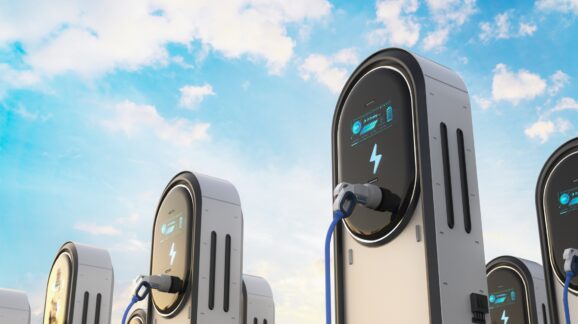An exemplary climate debate on campus

Photo Credit: Getty
I recently returned from Miami and the campus of Florida International University (FIU), where I was pleased to take part in the FIU Environment Forum, this year with the theme “Climate Tech and Coastal Resilience.” I spoke as part of the International Climate Finance panel. My remarks at the conference covered three basic themes:
- The dependence of decarbonization technologies on government subsidies is a problem
- Current environmental laws are getting in the way of US clean tech leadership
- There is a lack of focus in major industrial (and environmental) policy
With the huge subsidies in the Bipartisan Infrastructure Law and the Inflation Reduction Act (IRA), a large part of the industry for solar panels, renewable fuels, electric vehicles, and other technologies is dependent on the federal government. That’s not a good way to develop a robust industry that’s going to deliver value for consumers over the long term. We’re going to have to wean clean tech firms off of the taxpayer teat eventually, unless we want every alternative energy investment to be subsidized forever.
The second part in particular will be familiar to fans of eco-modernism and the abundance agenda. Current laws, especially the National Environmental Policy Act, make it far too difficult and expensive to develop new industrial infrastructure, even when it involves things like solar and wind. Environmental regulations of the 1970s are now standing squarely in the way of environmental policy goals 50 years later. The process created by these old laws needs to be drastically streamlined.
Finally, the other problem with major federal efforts, whether it’s the CHIPS and Science Act or the renewable energy rollout under the IRA, is what Ezra Klein has called “everything bagel liberalism.” That’s the expanding trend of forcing every major development project to serve multiple – often conflicting – goals. That includes government projects and private projects that need government permission or financing. That planning burden and splintered focus ends up making everything slower, more complicated, and more expensive. As a result, we get significantly less of the desired outcome. As Alec Stapp of the Institute for Progress recently pointed out, the federal government is currently subsidizing electric vehicle charging stations while also placing multiple restrictions on how and where they can be built. As a result, according to The Wall Street Journal, “Despite the $2 billion of subsidies already authorized, only two federally funded stations have opened.” We can – and must – do better than that.
Finally, I’d like to thank my former Competitive Enterprise Institute colleague and FIU professor Mario Loyola for organizing an excellent conference which addressed controversial topics while maintaining a high level of decorum and professionalism. Questions about how policymakers should best respond to concerns about future climate change have often generated public anger and conflict in recent years, so it was pleasant and reassuring to participate in an event dominated by respectful discourse. No famous paintings were coved in tomato soup during the course of the event. Thanks also to the VoLo Foundation for supporting the conference.
I also covered the FIU Environment Forum on Episode 62 of the Free the Economy podcast (the conference segment starts at 1:10).